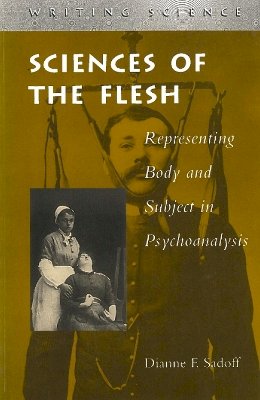
Sciences of the Flesh: Representing Body and Subject in Psychoanalysis
Dianne F. Sadoff
“Psychoanalysis may be said to have been born in the twentieth century,” Freud said late in his career, “but it did not drop from the skies ready-made.” And in his speculative theories of modernism, Bruno Latour argued that “no science can exit from the network of its practice.” Deploying Latour’s model of scientific theory production, this book argues that the historical emergence of psychoanalysis depended on nineteenth-century scientific practices: laboratory experimentation, medical transmission of research findings along collegial or social networks, and medical representation of illness—including case studies, amphitheatrical demonstration of cases, hospital records of symptoms, and laboratory graphology and ... Read more
The author shows how hysteria enabled Freud to appropriate medical and scientific concepts from neurology, sexology, gynecology, psychiatry, and existing rest cures and psychotherapies. His new model eschewed physiological determinism, linking unconscious ideation with counterwill and reproduced memory, psychosexual experience, and affect-laden images of object relations (usually with family members).
Constructing around himself a psychoanalytic circle and establishing training institutions, Freud translated this new psycho-physical body and hybrid subjectivity to other research sites. Just as in the 1890’s he had used the figure of the hysteric to mobilize theory production, by the 1920’s he had replaced the hysteric with a modernized figure, the homosexual. Freud used autobiography, summary, and outline to stabilize his concepts and control the dissemination of his new science. Psychoanalysis had successfully created new scientific “plausible bridges” between psyche and soma, nature and the social, to produce a modern theory of hybrid subjectivity that was rooted in yet conceptually separated from the body.
Show LessProduct Details
About Dianne F. Sadoff
Reviews for Sciences of the Flesh: Representing Body and Subject in Psychoanalysis
